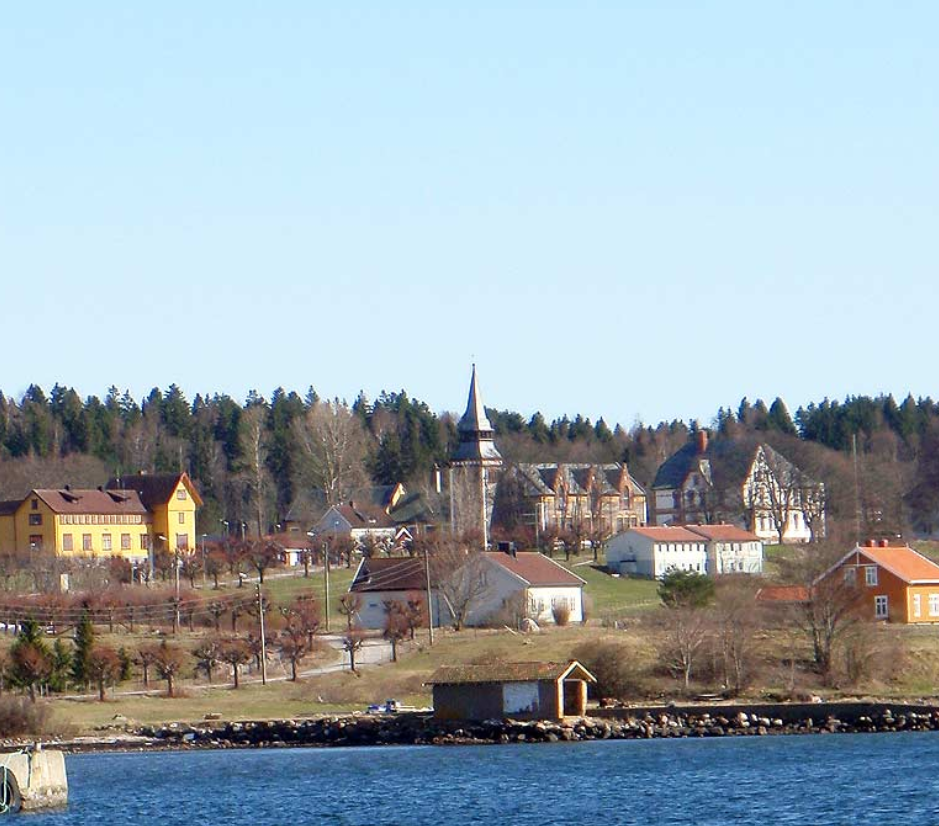|
Every prison reformer knows Bastoy. It’s a model prison in Norway, a short way from Oslo. It has just over 100 prisoners. It’s on an island in a lake. The prisoners live in cottages without locked doors and work on the farm. In their free time, they ride horses, cross country ski, play tennis, enjoy a sauna. They have a chef to cook for them. The staff: prisoner ratio is 1:2. And the reoffending rate is just 16%, compared to the European average of 76%. Or so we are told by an unending series of pilgrims to Bastoy (1). For it is the Holy Grail, the Promised Land, the Mecca of every prison reformer. Really? No. Of course not. Once you stop to think. And consider that:
So, statements about how much better Bastoy is at reducing reoffending than prisons in this country, or across Europe, are quite simply, meaningless. No-one who knows anything about the subject should even think of making such a comparison. Wouldn't you like to live here? But there are other reasons, too, why we should stop wittering on about Bastoy.
We know perfectly well, thank you, what is so wrong with our prisons and what to do about it, on the basis of real, grown up, research. We know that prisoners are less likely to reoffending if when released they have somewhere to live and employment or training when they leave prisons and money to sustain them through their first days at liberty. And we know that many don’t (4). We know that prisons are likely to have lower reoffending rates if the prisoners in them feel safe (5). We know that they often don’t feel safe, because violence and self-harm in our prisons have doubled since 2010 (6). We know that the in 2010, our prisons were in the best state they’d been in for generations. And we know – or all of us who aren’t Tory Ministers, or their PR people, know – what was he main cause of its descent into violent chaos by the mid-2010s. It was because Tory Ministers made swinging cuts – removing one third of front-line prison officers while not reducing prisoner numbers at all, in the process losing a lot of older, more experienced staff and middle managers (see analysis and graph here). We know that by cutting prison officer pay, the Tories made the very challenging job of a prison officer much less attractive than other jobs paying the same which are much less challenging, leading to dangerously high staff turnover and difficulty in recruitment. We also know that reducing reoffending became at the make time more diffiuclt because the Tories botched a sell off of the probation service so badly that the whole lot had eventually to be renationalised. We know what we need to do now to try to improve matters. And it’s not about model farms on lakes. Nope. It would require us to:
Still, on balance it is no more difficult than finding 800 model farms on 800 islands in 800 lakes, with horses, saunas, tennis courts, ski runs and a constant procession of gullible, ill informed, self-indulgent journalists. Notes
Scottish Centre for Crime and Justice Research: “Reducing reoffending: review of selected countries” 2012: “comparison of reoffending rates are not possible…such comparison would require thorough investigation to control for the many differences in defintions, reportinrg practices, enforcement cultures and pltical systems” “A Systematic Review of Criminal Recidivism Rates Worldwide: Current Difficulties and Recommendations for Best Practice” S Fazel A Wolf. Plos One, 15.6.18 see https://doi.org/10.1371/journal.pone.0130390. “Sample selection and definitions of recidivism varied widely, and few countries were comparable. Conclusions. Recidivism data are currently not valid for international comparisons.” 4) 1 in 7 prisoners is homeless on release. Only 1 in 5 got a job on release which they held for 6 months or more. Prison Reform Trust Bromley Briefings Summer 2019 5) ”Exploring the Relationship between Prison Social Climate and Reoffending” Katherine M. Auty & Alison Liebling. Justice Quarterly Volume 37, 2020 - Issue 2 6) https://www.julianlevay.com/articles/the-prison-crisis-is-getting-worse-not-better
0 Comments
"All I know is we got 5,000 niggers in this county who ain't registered to vote. And so far as I'm concerned, they never will be." Thus the sherrif, in Alan Parker's great 1988 film, Mississppi Burning, about the FBI investigation into the murder of 3 civil rights workers in Philadelphia, Mississppi, in 1964. The United States, as we have recently been reminded, is at heart a lawless, brutal, deeply racist country, where voter suppression is a hallowed tradition and has taken many forms, from gerrymandering, intimidation, removal of voting stations from poor areas, appointment of a Republican to head the US Mail to slow the postal votes before elections, Republican ID laws designed to make it near impossible for poor blacks to register or to vote, and of course, lynching and most recently, a Republican President who phoned election officials and ask them to fake the numbers his way, Republicans who gathered armed round the homes of election officials and sent deaths and rape threats to them and their wives and children, and Republicans egged on by their Republican President who attacked the nation's legislature, kill policemen and hunted down Deomcracts and even dissident Republicans to lynch right there and then, in the centre of the nation's capital, live on TV. Better no democracy than one that occasionally elects the other party. Of course, we don't do that here. True, every party supports or opposes changes in electoral processes and law that will advantage or disadvantage it. But neither party has ever gone in for voter suppression. Neither party attempt to make registration or voting more difficult. In fact now it's easier to register to vote than it ever has been, in the EU Referendum we signed up people on an IPhone in the street in 2 minutes. In this country, all parties accept that the voters' decision is paramount and if you lose, so be it. We dont try to stop people voting. Until now. Johnson has announced legislation which will stop you voting if you dont have the right ID. Is this because voter fraud is a growing problem in the UK? No: it isn't. And that's official. The Electoral Commmission whose job is it to monitor voter fraud, has this to say: They add that in 2019, there were 592 complaints of fraud to the police, mostly about local elections. Just 3 resulted in a conviction. Three. In a year.
Clearly, Johnson's legislation is not about fraud. It is about voter suppression. It is intended to make it harder for the most deprived, rootless, vulnerable in our society to have a say in how that society is run, on the assumption that they would tend to favour other parties than the Tories. It is utterly wrong and disgraceful. But entirely typical of Johnson and what one must call his Post Tory Party, because there isn't anything about it that connects to the great Tory tradition, not least of electoral reform, including the 2nd Refform Act and extension of franchise to women. The tradition Johnson choses to follow is that of Donald Trump's Republicans. A tradition more alien to this country and to our values and history than anything that ever came out of Brussels. We love learning from failure, but for some reason, aren't quite as interested in the lessons of success.
Success in offering at least the first part of the COVID vaccination to everyone in the top 4 risk groups, some 15 million people, by mid February is a major step forward and way ahead of any other country of similar size, or larger. It owes it's success to a mix of political leadership, intelligent (for a change) government procurement, excellent scientific advice, a venture capitalist parachuted in to head the programme, wicked old for-profit Big Pharma and that old fashioned public sector public service, the NHS. A big disappointment therefore to ideologues of both Left or Right. What was NOT involved was private sector delivery of heathcare, which has so often turned into disaster - SERCO's failed contracts for primary care in Cornwall and for Braintree Hospital, Circle's failed contract for Hinchinbrook Hospital, so many hospital PFIs that turned out to rip off the taxpayer and hamstring the NHS, and SERCO track and trace, though to be sure, that is a complex story, with the public's non compliance a major factor. All the more incomprehensible that the Govt want to press on with privatisation of healthcare services, the triumph of blind ideology over experience. So much liberal 'thinking on prisons is self indulgent slop. Like this piece here. Asks ‘what if we got rid of prisons?’ But then says, oh, we’re not really talking about getting rid of prisons. So why ask the question? A question you’re not actually posing at all? Because the writer wants to feel all daring and woke and radical. Without actually being any of that. It’s a fraud, in other words. Massively ignorant: “The prison population has risen by 70 per cent in the last 30 years. Few would claim society has got much safer.” Yes, it has, dickhead. Did you never hear of the BCS? Writer plainly does not know reconviction rate for prisoners has fallen steadily since late 2000s! Sloppy beyond belief: ignores all the purposes of imprisonment other than reducing reoffending. As though that is the only reason anyone would ever be sent to prison! Otherwise, he implies, a rapist, a murderer, we’d just give a fine, or maybe not bother at all. Appears to rely on poll by a marketing organisation that is not a member of the British Polling Council and appears not to publish its data, and whose ‘findings’ are inconsistent with many proper polls and academic studies. Talks up Bastoy but fails to note there is no published research demonstrating Bastoy’s effectiveness and that since Norway generally has low offending rates, it’s inevitable that it also has low reoffending rate, not an effect of its prison but different culture. And so on. I actually am against building more prisons. I actually am in favour of a smaller prison system. I actually think our prisons are in a terrible state. But precisely because I hold those views, and hold them strongly, I am dead against this kind of slop. Because it impedes serious thinking. Three pairs of films, from Japanese, French and Swedish cinema, that I sent to a friend recuperating from a major operation recently.
Tokyo Story was made in 1953 by the Japanese director Ozu. It figures on many lists of the greatest fims ever made. At first sight that's odd, because it's made in a very static style, completely at odds with western film making. Ozu uses his distinctiive tatami shot named for the reed mats used in traditional Japanese houses. The camera just sits there, at floor height, looking at the room people are in: seldom any close ups or reaction shots. He also used distinctive 'pillow shots' to punctuate the story when you see 2 or 3 minutes of a landscape completely unrelated, such as a steamer on a river, and when you come back to the story, often it becomes clear that something very important has happened meanwhile. Funny thing is, you quickly get used to the rules of his style. Ozu was much preocuppied with family relationship, in this case, the weakening sense of duty of children to ageing parents. The exception here is the dutiful daughter in law played by Setsuko Hari. She had a sort of daughterly relationship with Ozu and retired completely when he died in 1963, living in total seclusion til 2015! Her role as the submissive and self sacrificing daughter is at odds with our thinking today, but so central to Japanese culture. My wife and I both fell slightly in love with her. She somehow makes every other actress you've ever seen seem slightly....tawdry. The other film is Shoplifters, 2018, by Kore-eda. It's also about the idea of the family but in a completely different way! In fact the failure of traditional families is rather an obsession with him - another film is about the changes when two couples find their 6 year old sons were swapped at birth, another about a child abandonment case. The two French films are both about a boy who is an outsider, whose family ties have failed, and who embraces a life of crime and transgression. Both have somewhat inconclusive, and in a conventional way, unsatisfactory endings. And both feature a boy actor who had acted little or not at all, before, and who gave the single compelling performance of his life, before he really knew anything of acting. Truffaut’s Les Quatres cents coups (literally, ‘the 400 blows’ but untranslatable – in French, ‘faire les quatre cents coups’ means ‘to raise hell’), 1959, is about a young boy’s descent into a life outside the law. He was played by Jean-Pierre Leaud, aged 14, who’d appeared in one film already. His performance is extraordinary. The film launched the French New Wave. Truffaut became a father figure to Leaud and had him as lead actor in several later films in which he played the same character grown up, but as so often with child actors, the magic only worked once. For me an insight of this film is the terrible material poverty of France in the late 50s. Compared to now, it’s third world. It’s not just that they lacked washing machines etc, it’s that life itself seemed thin, bare, primitive. Malle’s Lacombe Lucien, 1974, is about a rootless peasant lad in SW France in 1944, seeking some sort of role in the war as played out in a small town. One could say it is about a boy with no insight, almost pathologically indifferent to what is going on - yet capable of some sort of tenderness towards the Jewish father and daughter he encounters. The dinner at with the Jewish father, already half looking forward to death, his beautiful daughter, the silent sick grandmother, reluctantly entertain the boy, by then a fascist gangster, is one of the most ambiguous in all cinema. I feel sure that none of the actors, nor Malle himself, really understood or controlled the strange currents of fear, desire, respect, contempt and tenderness that were criss crossing that scene. The boy actor had never acted before: he’d been a forester before. Yet he made such an intuitive success of a very diffiuclt role, a character who lacks character, who is in some way, empty. A non-actor acting a non-character. It’s remarkable. Sadly, success did not last, after a couple more films he bought a big car with his new earnings, crashed and died in it. The third and last pair of films is Swedish, by the great man of Swedish cinema, Ingmar Bergman and by his son Daniel. Ingmar Bergman’s Wild Strawberries (1956) is about an old man coming to terms with a life not well lived, in which his status and accomplishments count for little weighed against his missed opportunities for love. He does so in the course of a long road trip from Stockholm to Lund across beautiful coast and countryside of Sweden (even though it’s in black and white). Along the way, reveries and the people he meets help him understand himself a little better. Maybe even begin to forgive himself. It’s in a superbly clean new print, for years we only had a scratch old version. Peace comes at last, as he revisits his childhood. It’s one of my very favourite films. At the end of his life his son Daniel directed Sunday’s Children (1992), which was written by his father Ingmar. It references the same kind of childhood in the Swedish countryside – clearly this is Ingmar’s own story – but It’s the reverse of Strawberries. Here, the moment of reconciliation existed in the past, in childhood, but is forgotten by father and son in old age. (Irony here, since Ingmar himself was a notoriously bad parent). What’s the opposite of ‘coming to terms’? Here, in short, are two ideas of the meaning of life – as something one progresses slowly towards via experience and age; and as something that exists, if at all, in the moment lived, which is not somehow stored up or accumulated for the future. The performance of Henrik Linnros, then aged 9, as the child is remarkable. I’ve often wondered how an earth you direct a child of that age. Or do you just left them be themselves? Like so many child actors, his career did not live up to its beginning. Daniel Bergman eventual gave up directing – in which he was accused, inevitably, of benefiting from his father’s name – to become a paramedic, saying that he would do more good that way. It’s even possible that his medical work saved more lives than those driven to suicide by his father’s existentially tortured films. |
I was formerly Finance Director of the Prison Service and then Director of the National Offender Management Service responsible for competition. I also worked in the NHS and an IT company. I later worked for two outsourcing companies.
Archives
July 2024
Categories
All
Click below to receive regular updates
|









 RSS Feed
RSS Feed